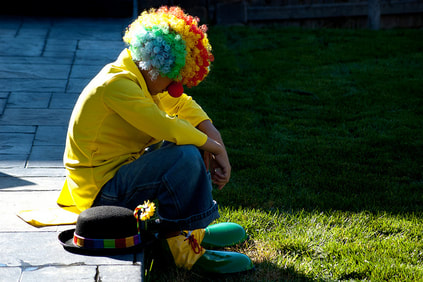If you’ve ever been an athlete, or gym-goer, or recreational activist, you’ve probably experienced a setback; something comes up, an injury occurs, or other priorities (you know, life) pop up. I’ve talked with many people about setbacks, and one of the most outstanding features is the sense of hopelessness one gets—“It’s so hard,” or, “I’ll never be back where I was,” or “It will never get better.”
One of the most redeeming qualities of humans is that yes, things can get better. A torn rotator cuff? Manny Pacquaio came back. There’s therapy or surgery. Been out of the gym for 6 months? How many athletes, like Brett Favre, leave and come back in shape?
I have a client—let’s call her Roberta. She’s with me right after two knee replacements and a touch-up on one of them. She’s been in pain for years. Not the kind of annoying pain that sort of never goes away—the pain that’s always there, with every movement, every day. She works six days a week, and the quality of her day-to-day life has been diminishing. At 52 years young, she should still have more in the tank. She knows this, and she knows she’s worth more than sitting and watching her life pass by.
Oh, and Roberta was a volunteer firefighter.
She knows what she used to do. She used to “hang with the guys”--she used to pull people out of houses, climb ladders, jump ledges. And now she’s doing seated foot-slides to come back from her most recent surgery. Needless to say, Roberta has told me the above statements.
The thing is, of course it’s hard. It’s 100% easier not doing anything than it is doing that thing. The question is, is it worth the effort?
Also, what’s going to make you feel worse; dwelling in defeat, or succeeding in intermittent goals?
Then, without a goal it’s just an idea. And ideas just eat away at you until they become things you didn’t do.
So in the meantime Roberta will be working and training. She’ll be striving to walk without braces. And she’ll be looking to play with the grandkids she’ll have. At the end of the day we’ve accomplished a different understanding. Despite setbacks, and despite the immensity of the task, we’re remembering this:
How do you eat a whole cow?
In small bites.
One of the most redeeming qualities of humans is that yes, things can get better. A torn rotator cuff? Manny Pacquaio came back. There’s therapy or surgery. Been out of the gym for 6 months? How many athletes, like Brett Favre, leave and come back in shape?
I have a client—let’s call her Roberta. She’s with me right after two knee replacements and a touch-up on one of them. She’s been in pain for years. Not the kind of annoying pain that sort of never goes away—the pain that’s always there, with every movement, every day. She works six days a week, and the quality of her day-to-day life has been diminishing. At 52 years young, she should still have more in the tank. She knows this, and she knows she’s worth more than sitting and watching her life pass by.
Oh, and Roberta was a volunteer firefighter.
She knows what she used to do. She used to “hang with the guys”--she used to pull people out of houses, climb ladders, jump ledges. And now she’s doing seated foot-slides to come back from her most recent surgery. Needless to say, Roberta has told me the above statements.
The thing is, of course it’s hard. It’s 100% easier not doing anything than it is doing that thing. The question is, is it worth the effort?
Also, what’s going to make you feel worse; dwelling in defeat, or succeeding in intermittent goals?
Then, without a goal it’s just an idea. And ideas just eat away at you until they become things you didn’t do.
So in the meantime Roberta will be working and training. She’ll be striving to walk without braces. And she’ll be looking to play with the grandkids she’ll have. At the end of the day we’ve accomplished a different understanding. Despite setbacks, and despite the immensity of the task, we’re remembering this:
How do you eat a whole cow?
In small bites.


 RSS Feed
RSS Feed
